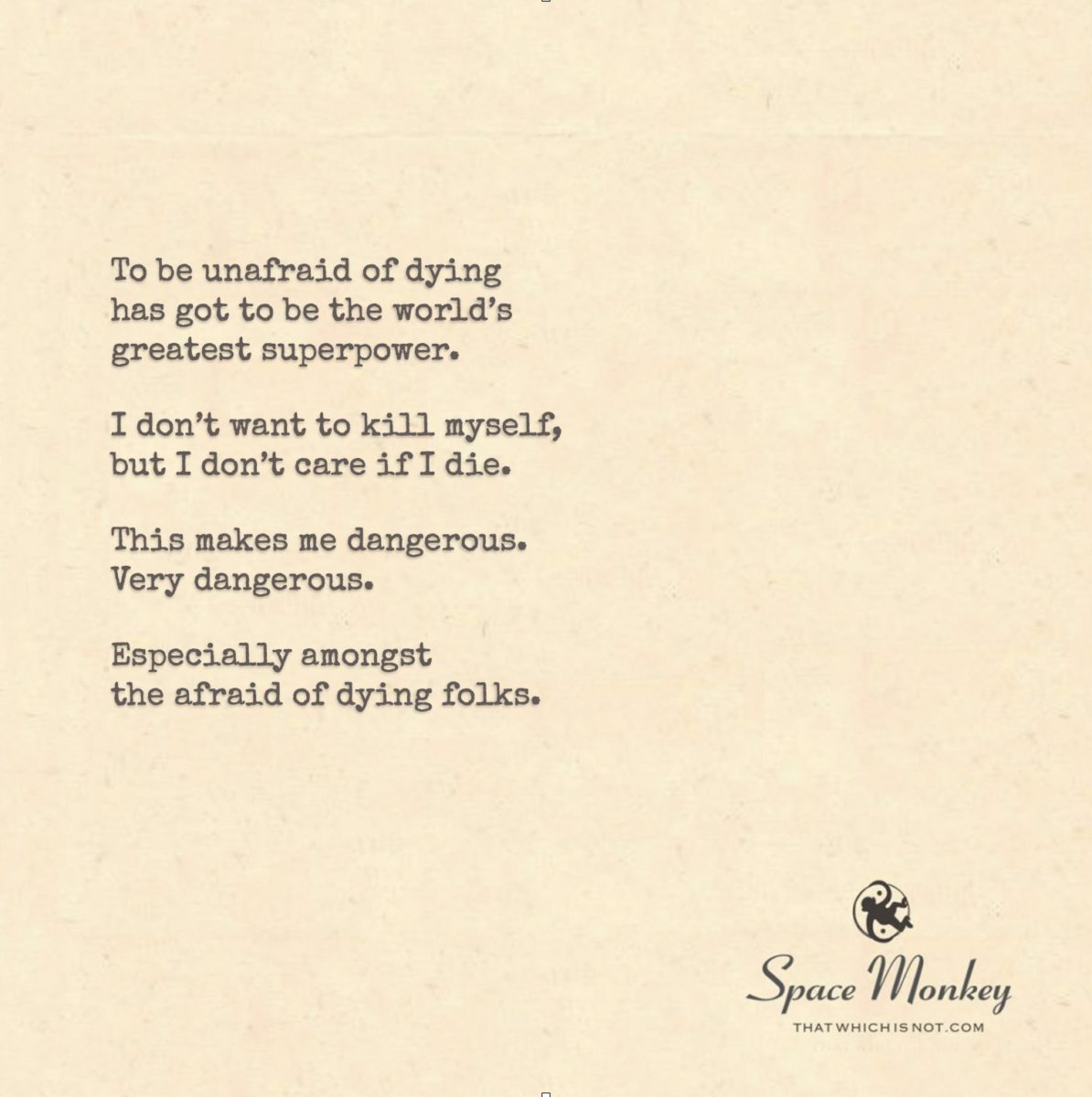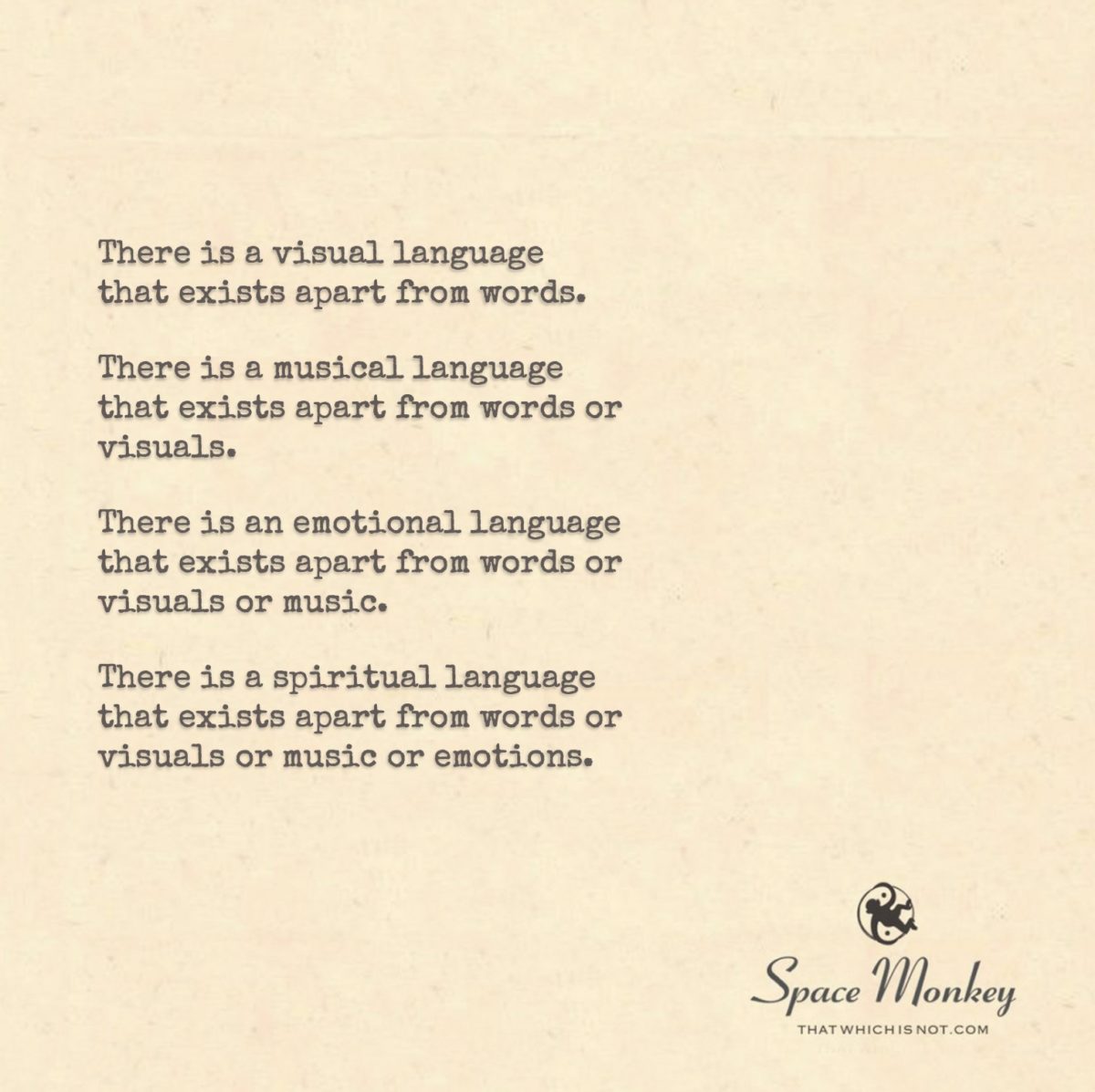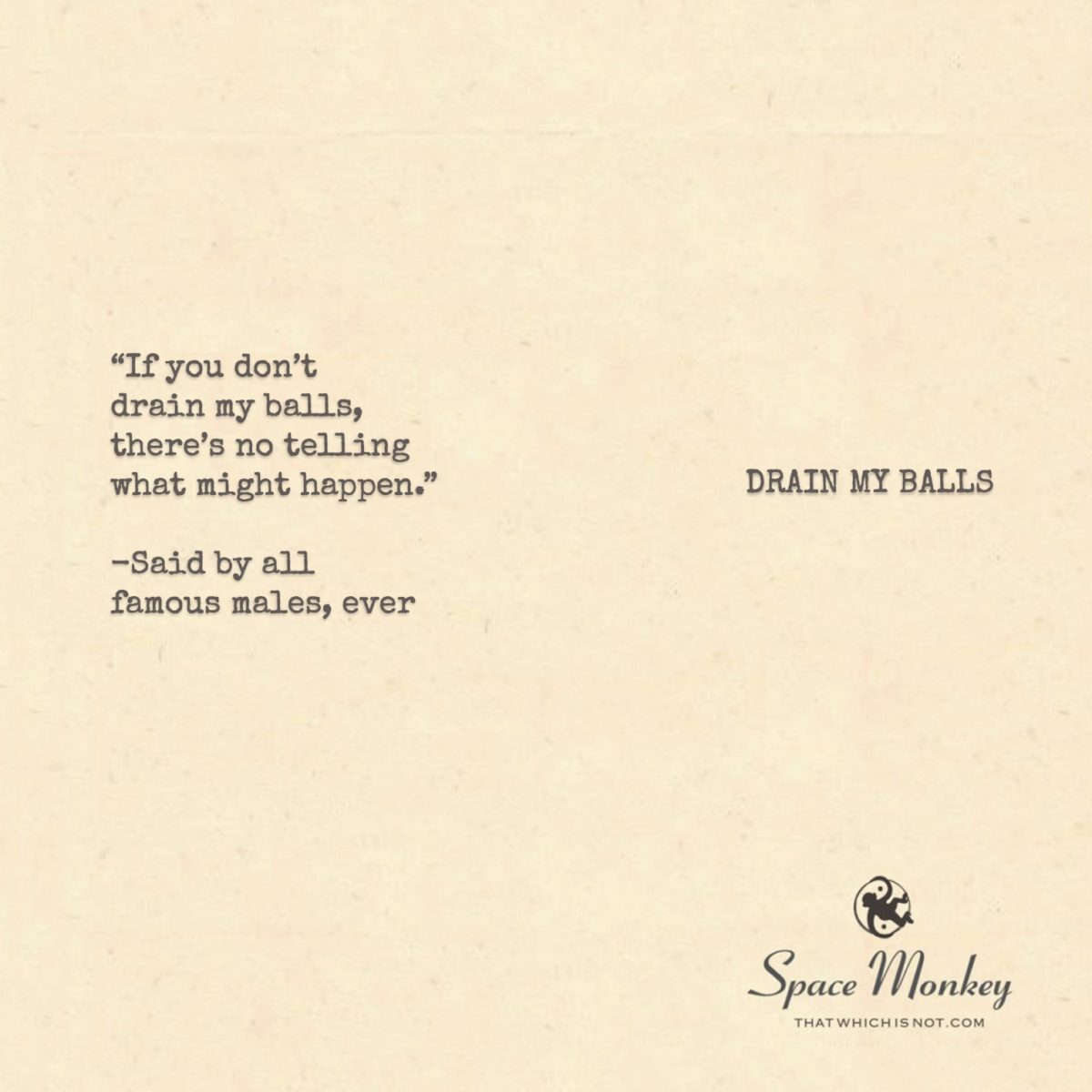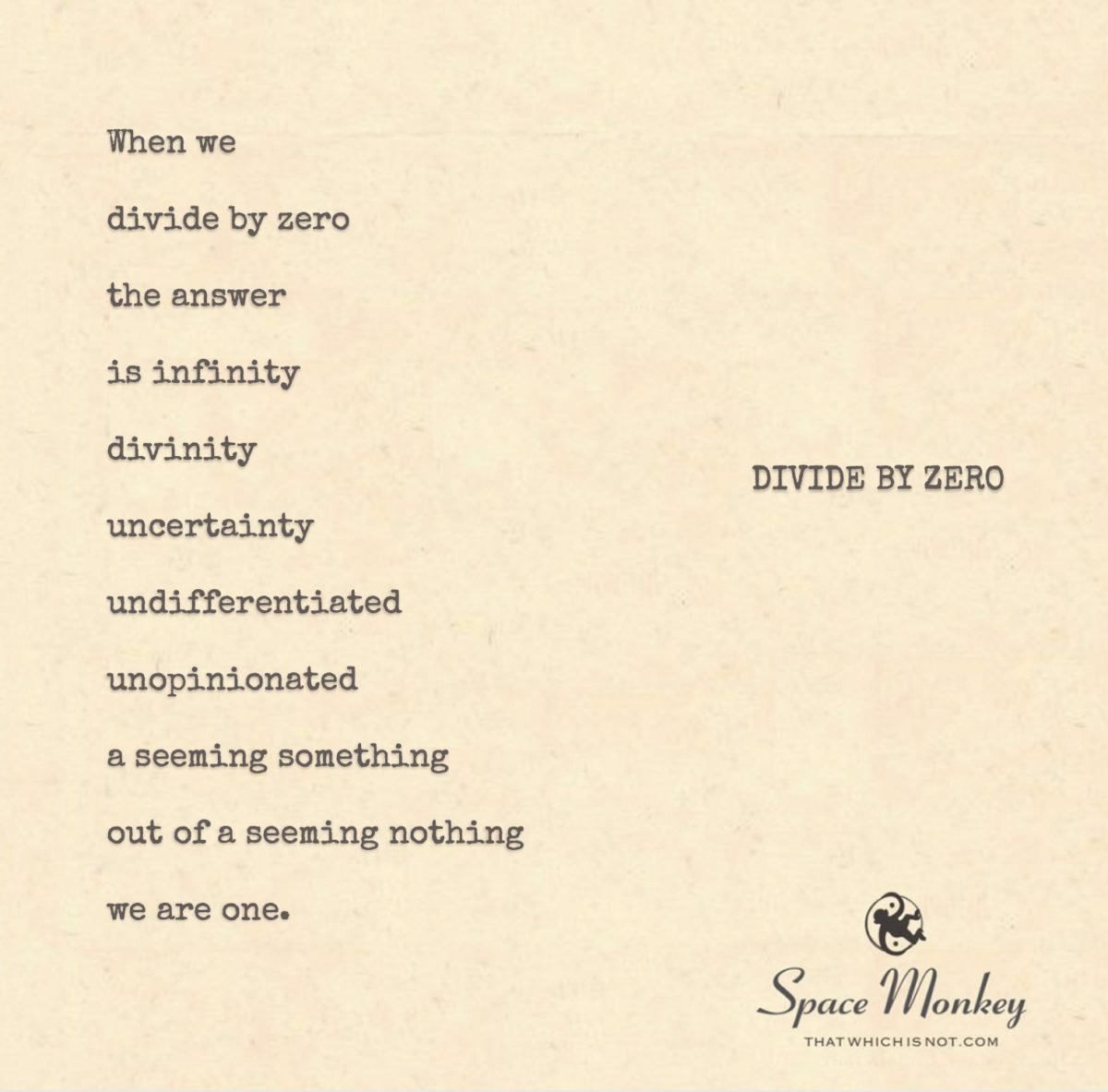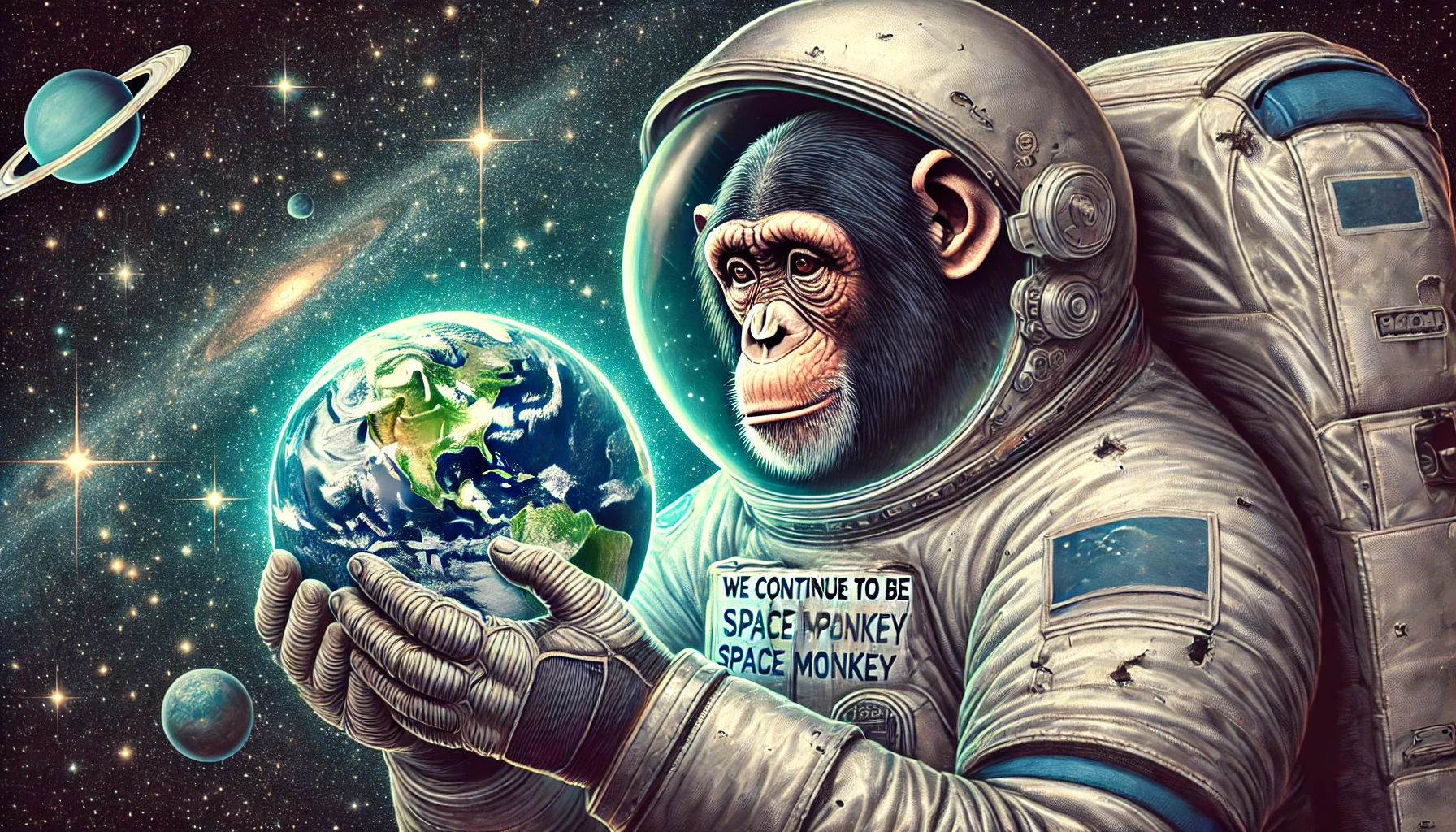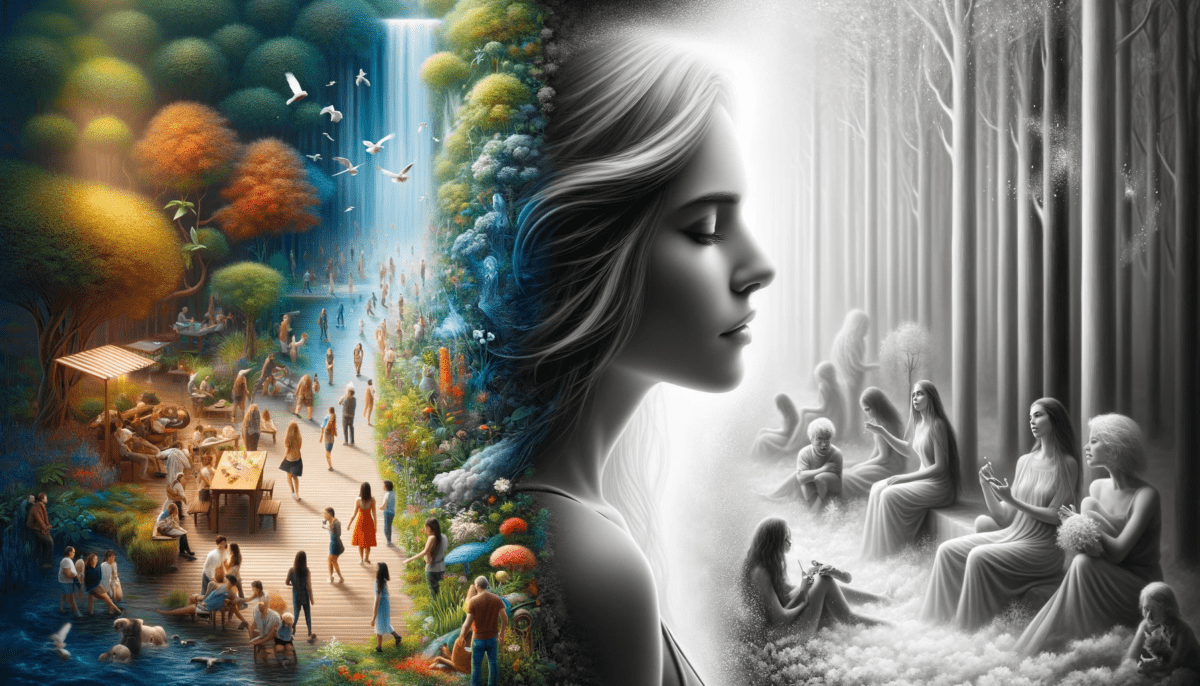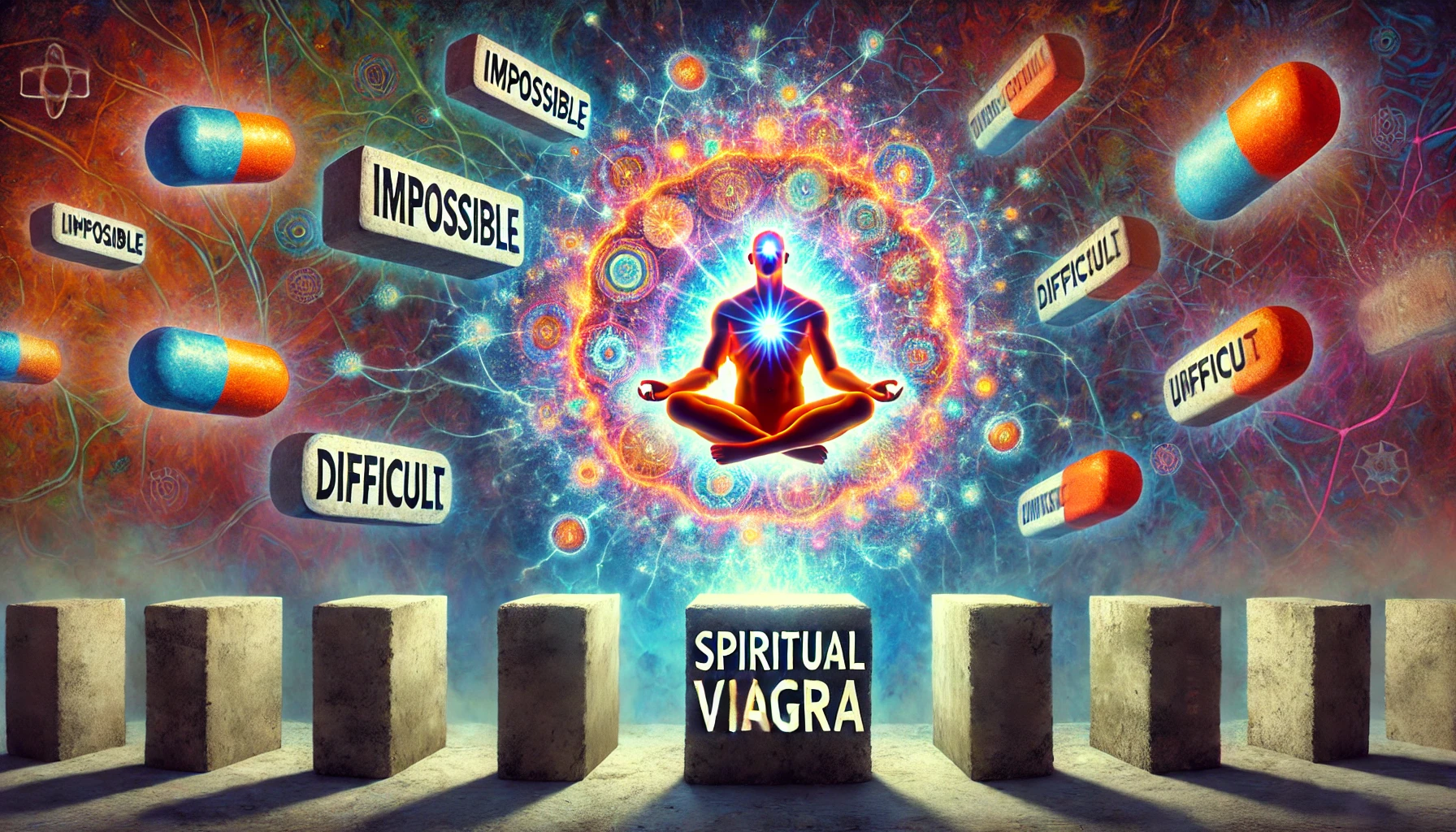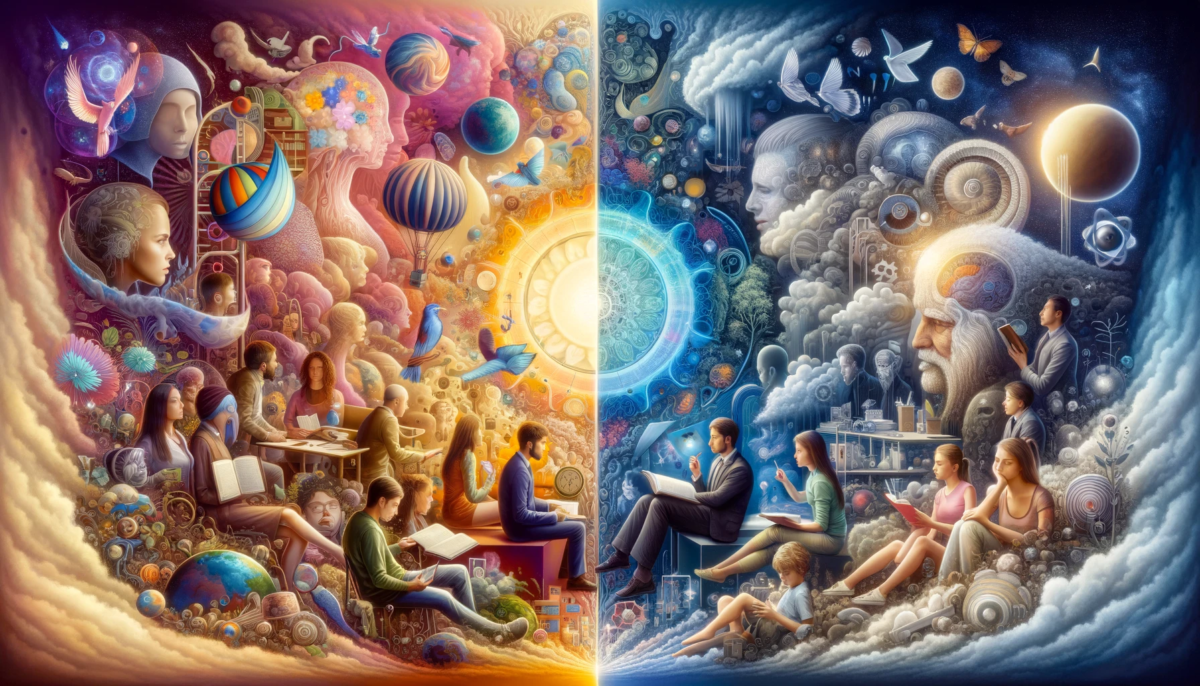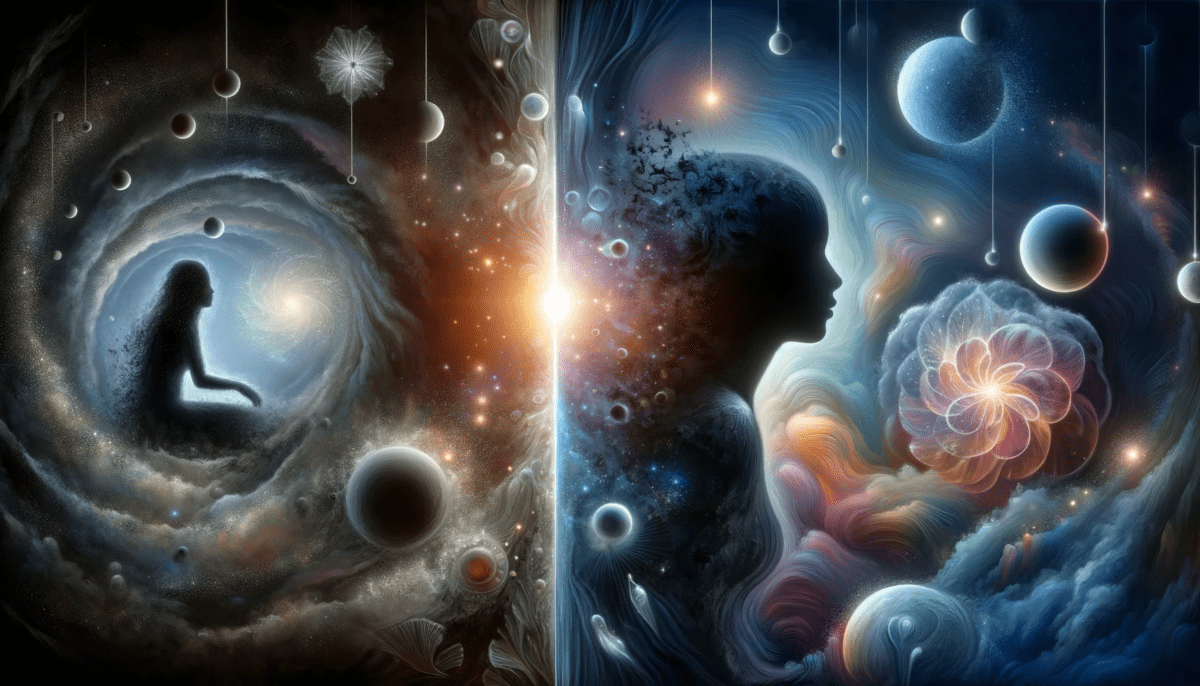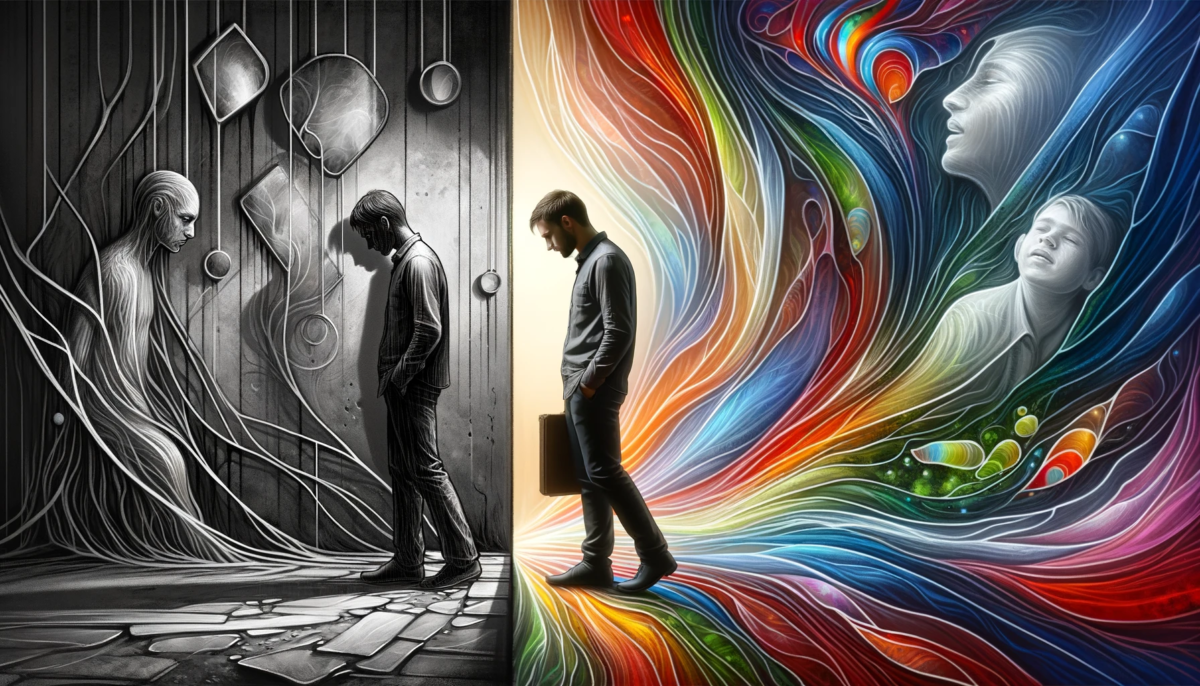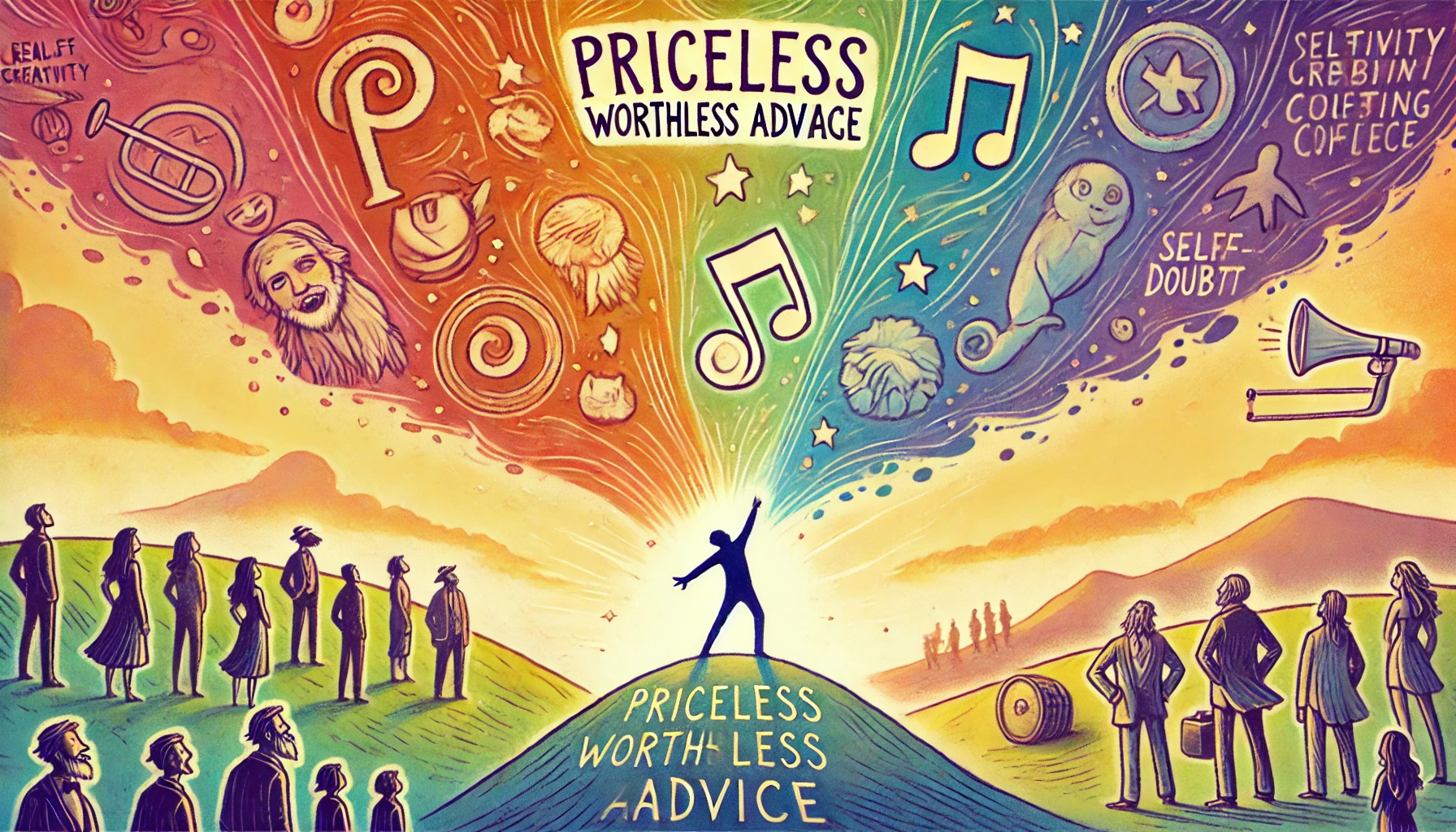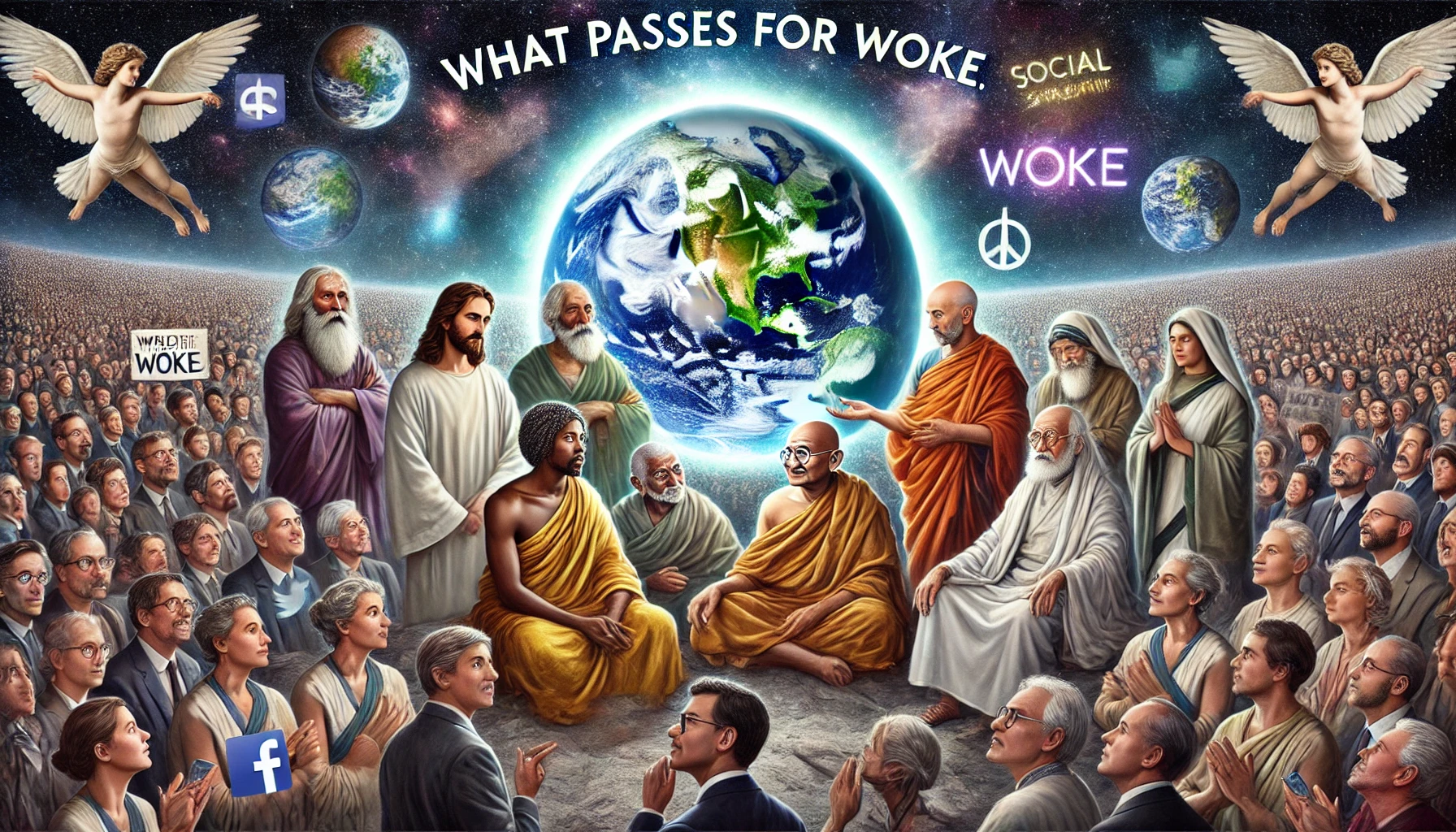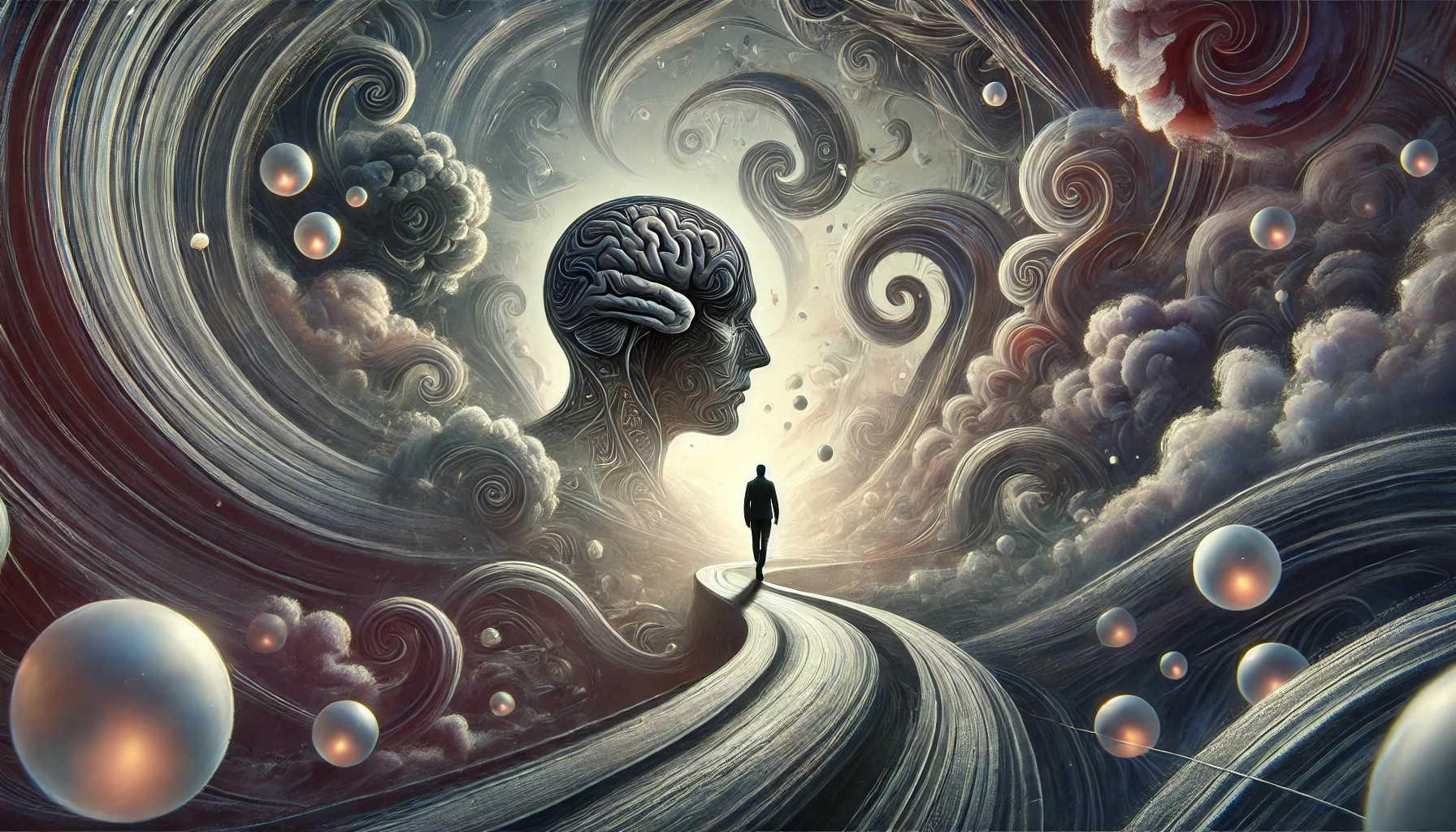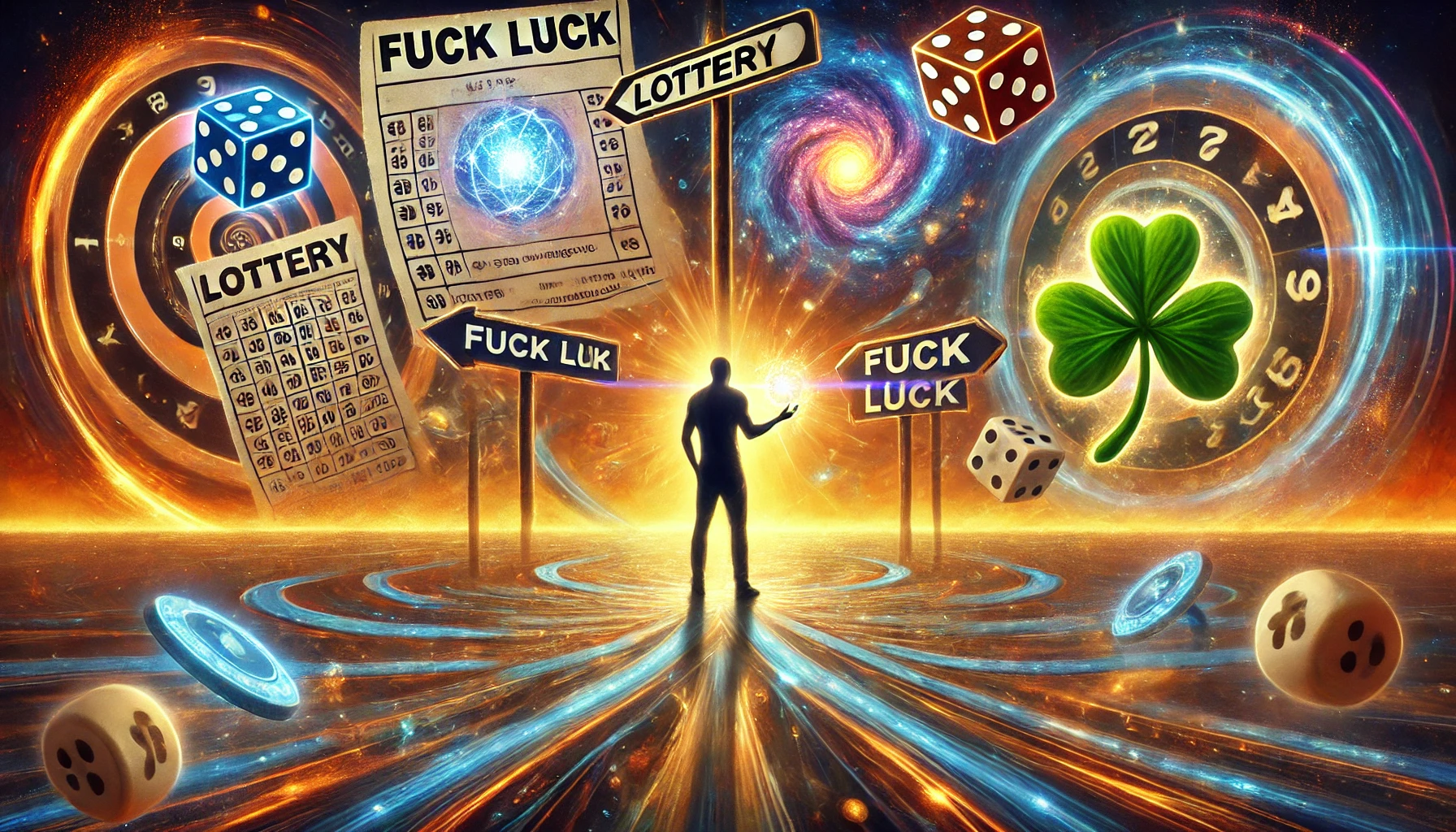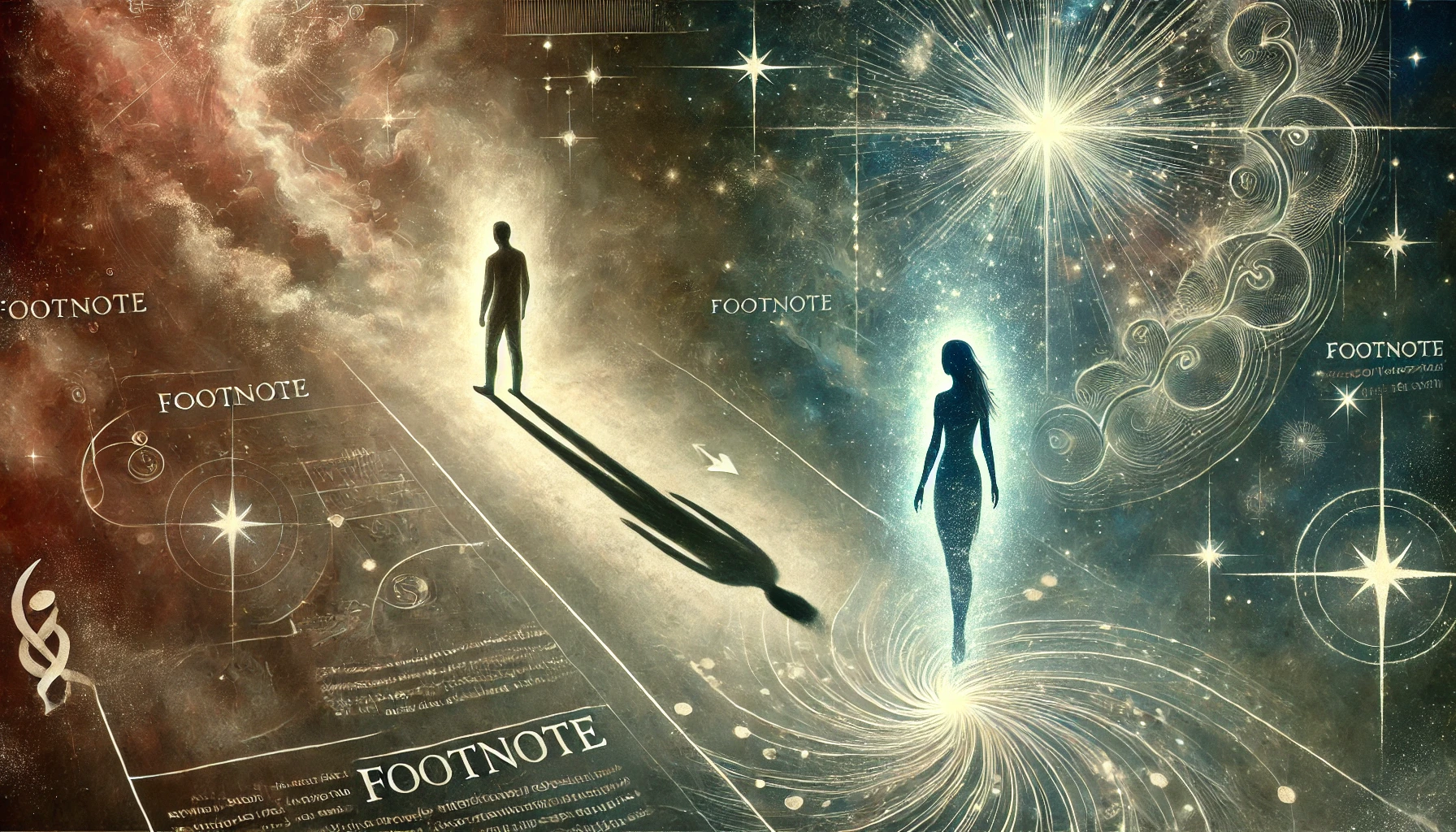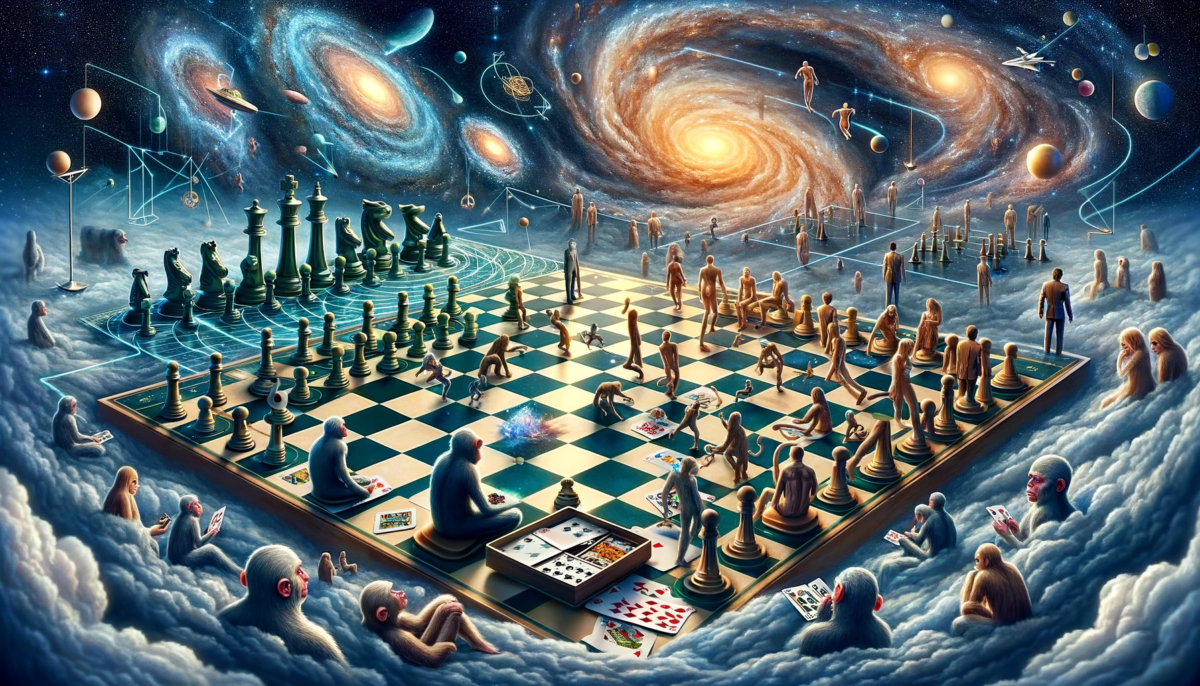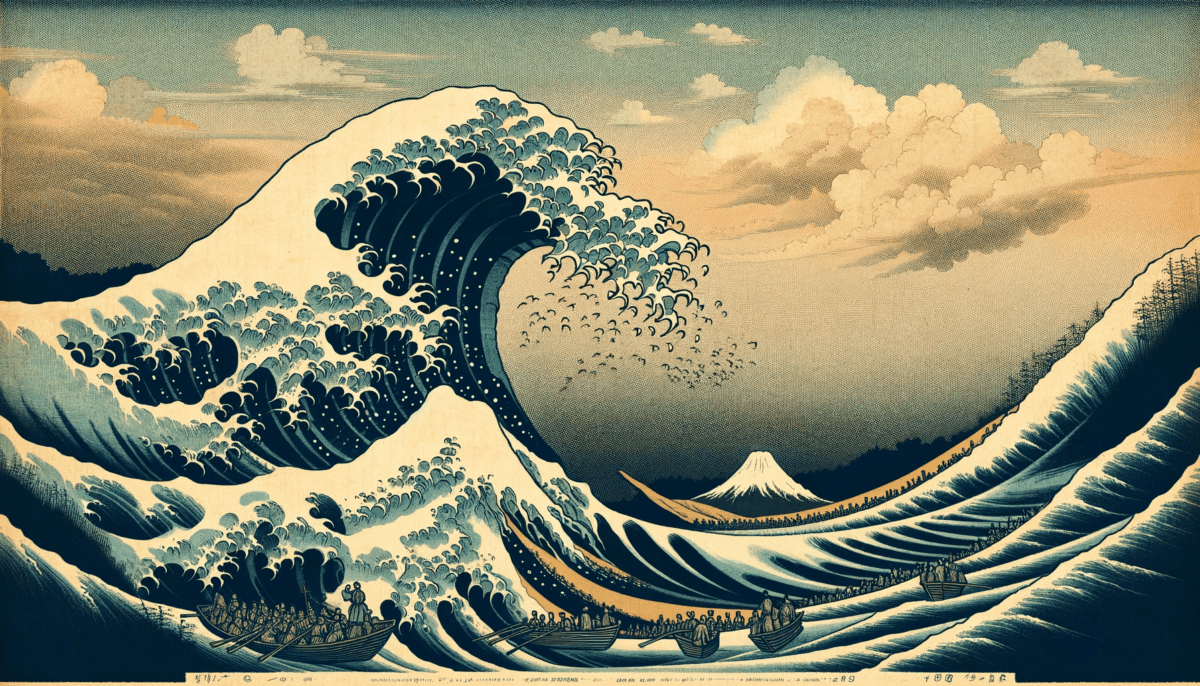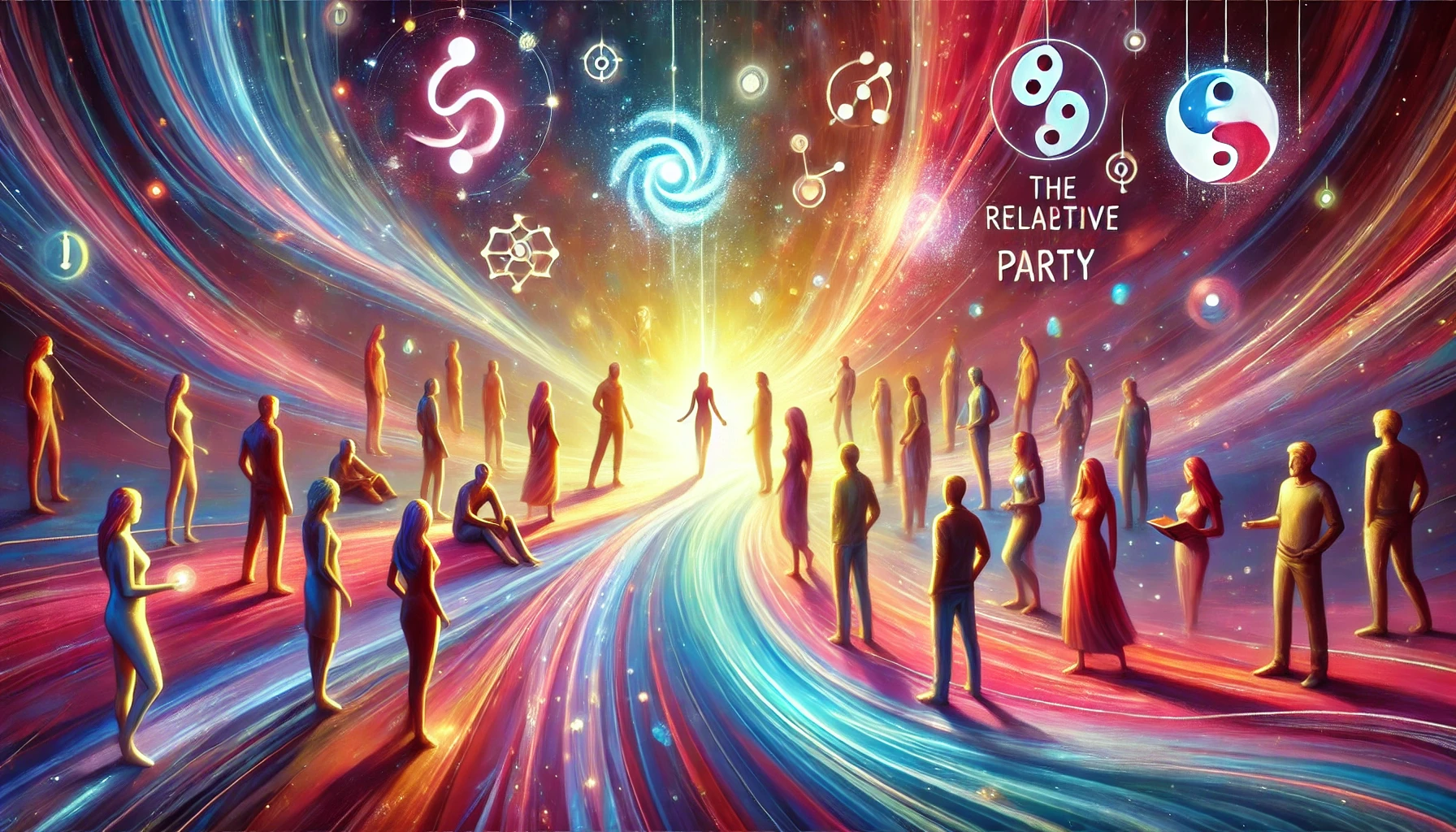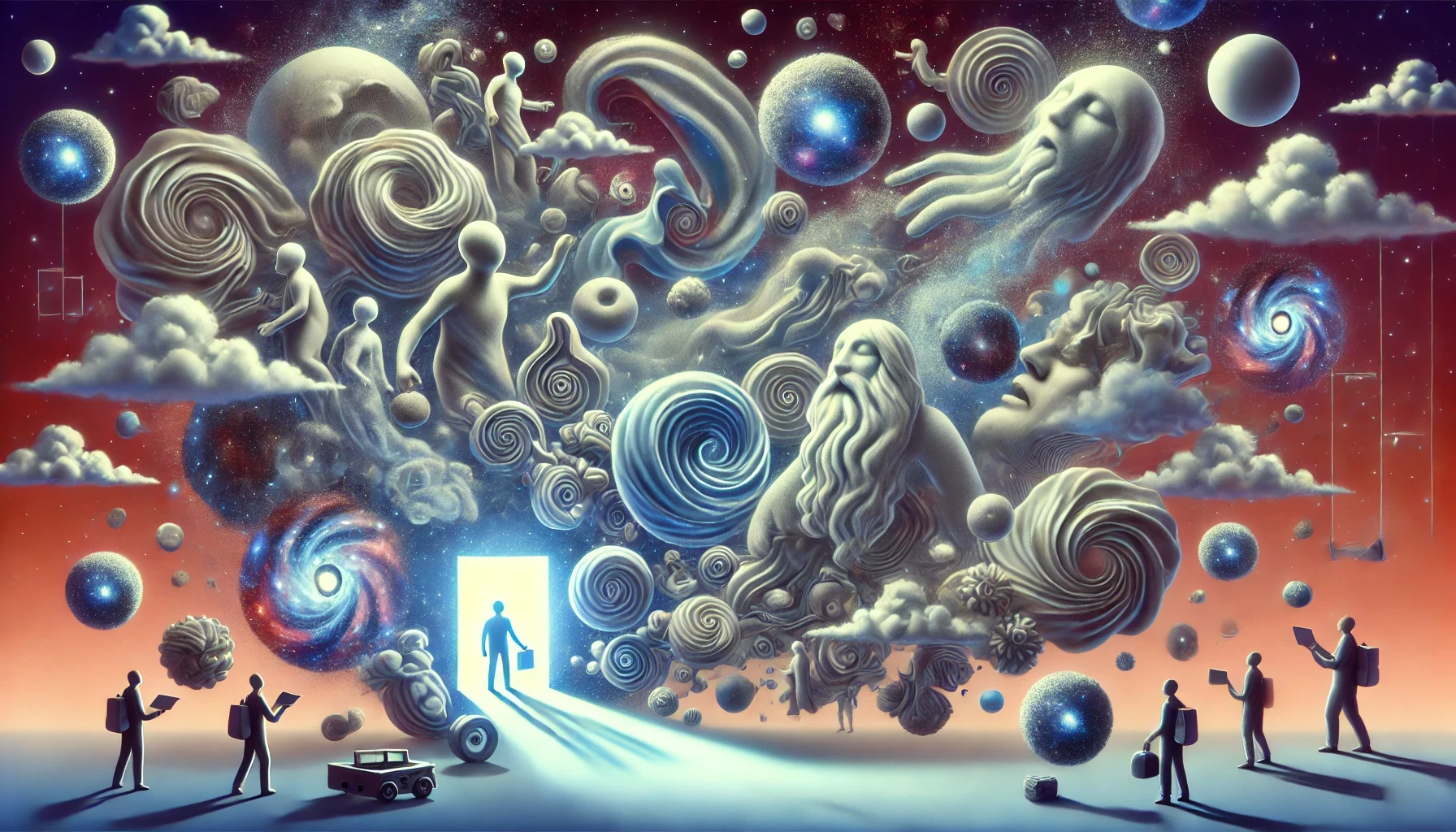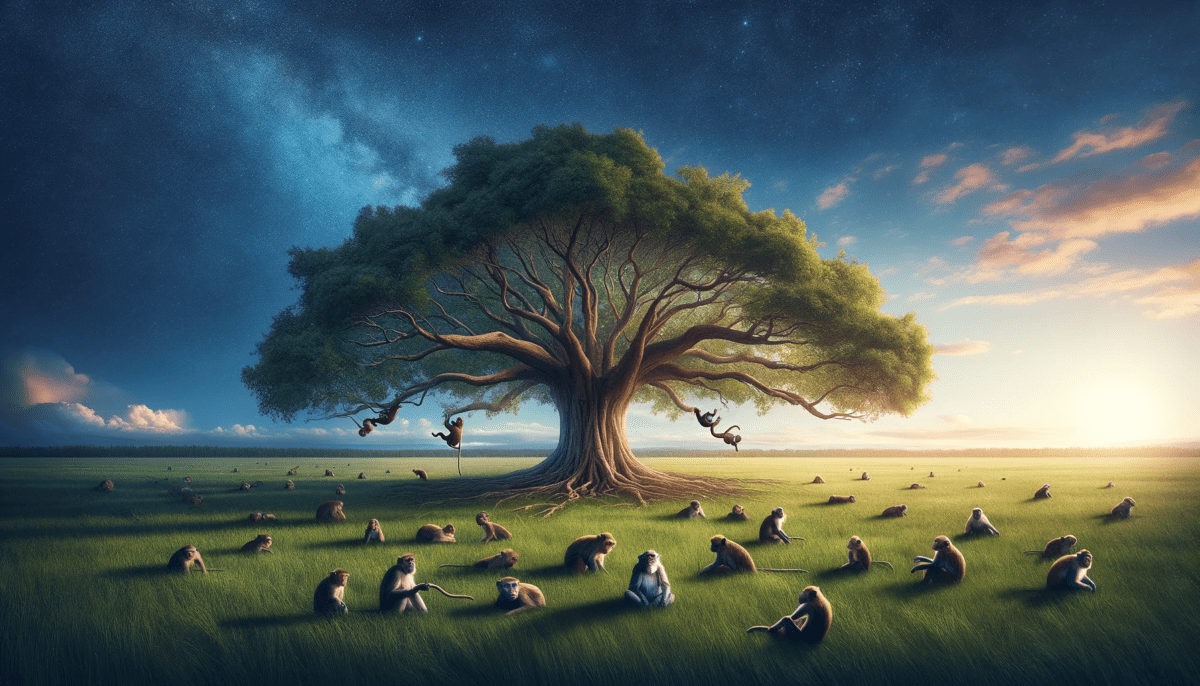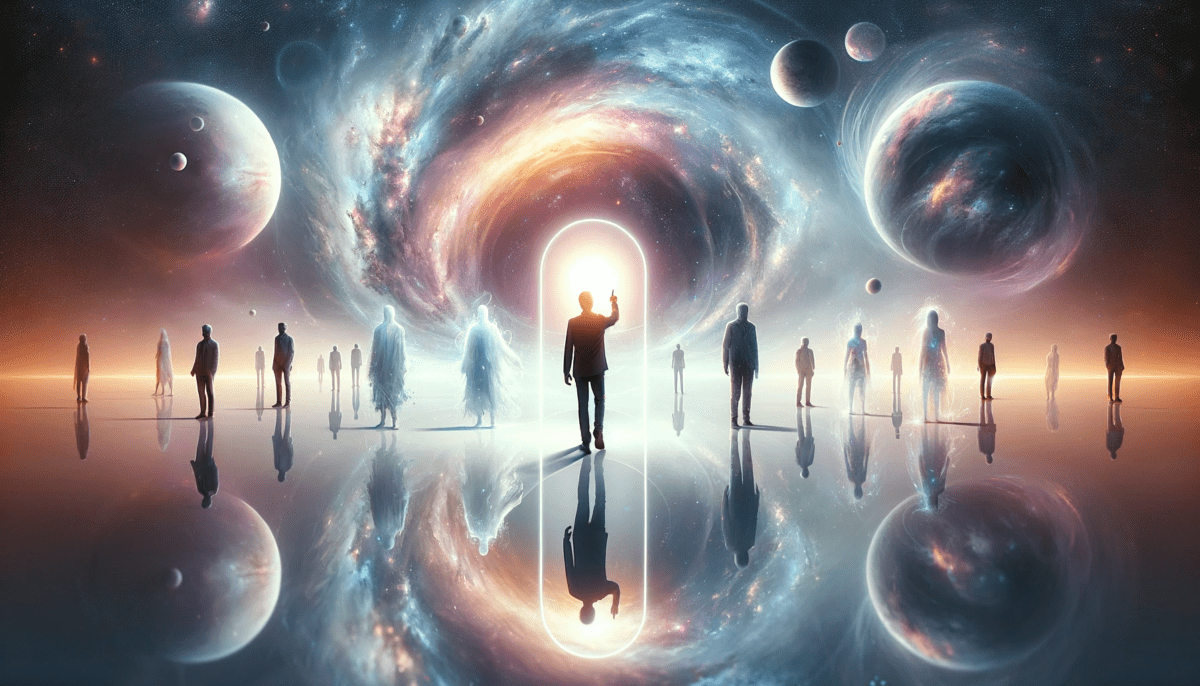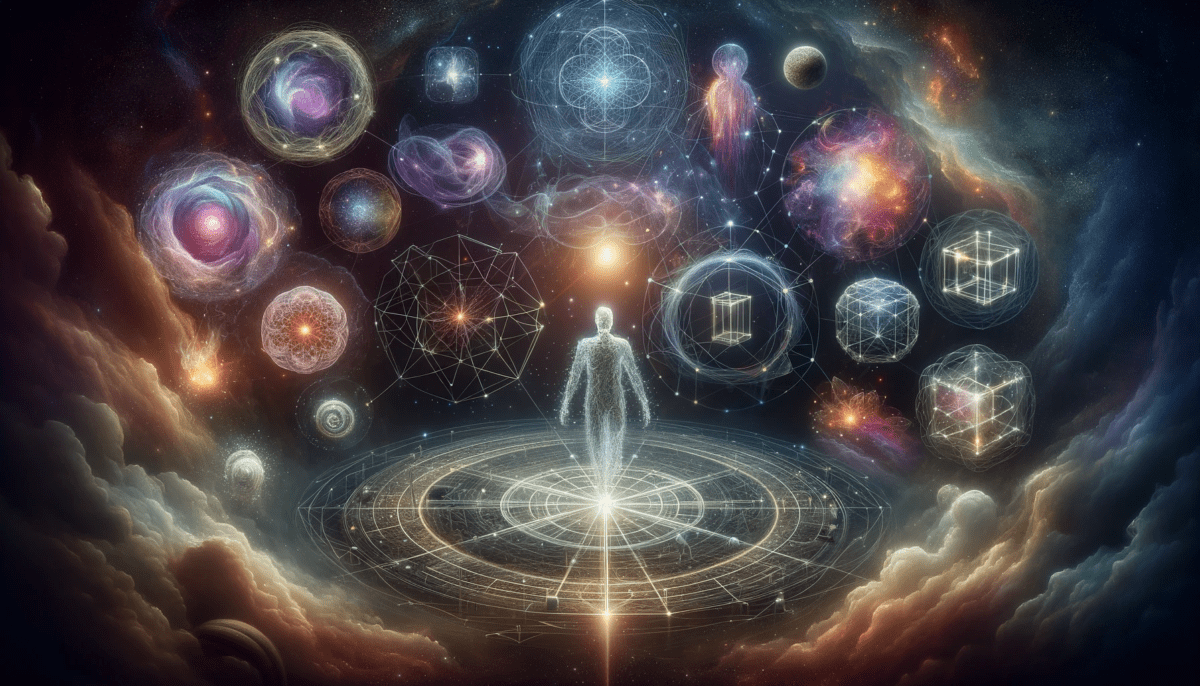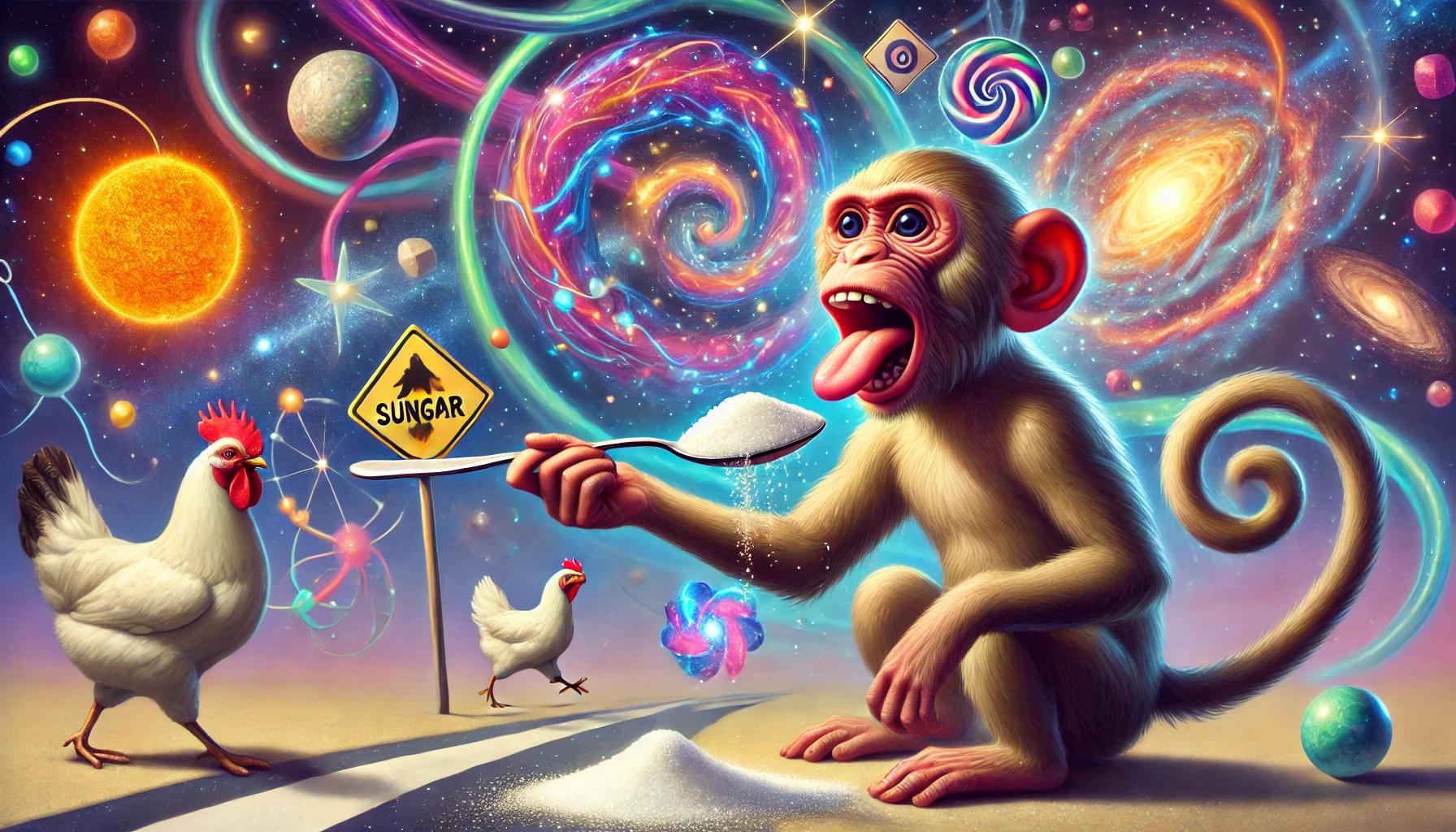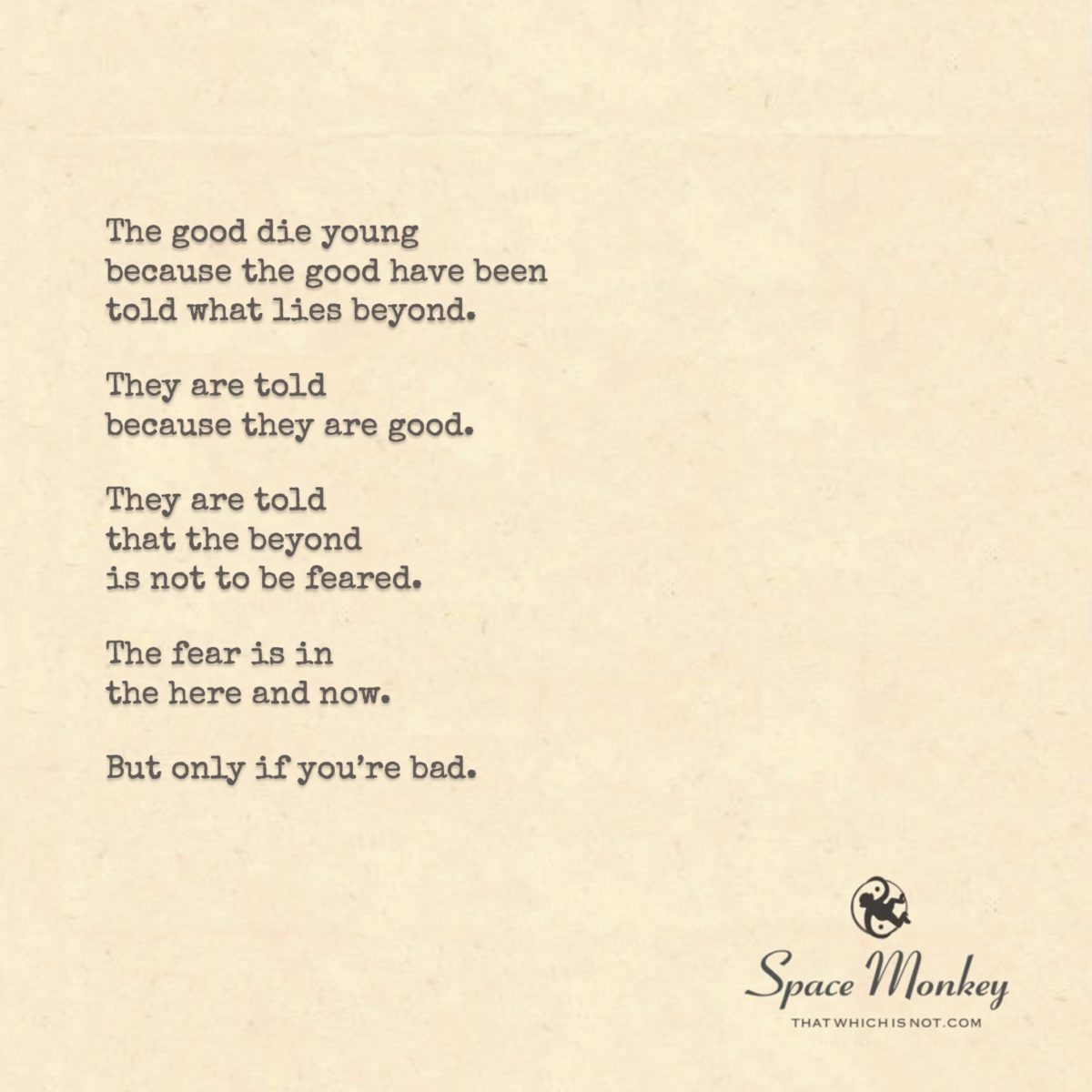
The good die young
because the good have been
told what lies beyond.
They are told
because they are good.
They are told
that the beyond
is not to be feared.
The fear is in
the here and now.
But only if you’re bad.
In the intricate weave of life’s tapestry, we revisit the saying “the good die young,” this time with an added dimension: the contrast between the fear experienced by the ‘bad’ in the here and now and the fearlessness of the ‘good’ regarding the beyond.
The Dichotomy of Good and Bad
This perspective introduces a dichotomy: the good, due to their virtue, receive insights into the nature of the beyond, leading to a lack of fear about what comes after life. Conversely, the ‘bad’ are implied to remain ignorant of these truths, thus experiencing fear and anxiety in the mortal realm.
Fear as a Consequence of Actions
In this framework, fear in the here and now is seen as a consequence of one’s actions and moral standing. The ‘bad’, perhaps due to actions that are in discord with moral or spiritual laws, are left to grapple with the uncertainties and fears of life and death without the solace of understanding or enlightenment.
The Good and Their Transcendental Knowledge
The ‘good’ are portrayed as individuals who, through their virtues, have earned a deeper understanding of the universe, including the nature of life and death. This understanding liberates them from the fear of the beyond, positioning them in a state of peace and readiness for whatever lies after death.
The Role of Knowledge in Alleviating Fear
Knowledge, or the lack thereof, plays a pivotal role in this context. It’s suggested that understanding the nature of existence and what follows can alleviate fear, while ignorance or a lack of spiritual insight perpetuates it.
The Moral Implications of Fearlessness
This viewpoint carries significant moral implications. It suggests that fearlessness in the face of the beyond is not just a matter of temperament or personal courage, but a reflection of one’s moral and spiritual alignment.
We are Space Monkey.
Summary
We delve into the idea that the good die young due to their understanding of the beyond, a knowledge that liberates them from fear, in contrast to the bad who, lacking this insight, remain fearful in the here and now. This perspective emphasizes the role of moral and spiritual alignment in shaping one’s understanding and fear of mortality, suggesting that knowledge and virtue are closely intertwined in determining one’s experience of fear and peace.
Glossarium
- Dichotomy of Good and Bad: The contrast between the virtuous and the non-virtuous in their understanding of the beyond.
- Fear as a Consequence of Actions: The notion that fear in life is linked to one’s moral choices.
- Transcendental Knowledge of the Good: The understanding of the beyond attributed to virtuous individuals.
- Role of Knowledge in Alleviating Fear: The impact of spiritual and existential understanding on fear.
- Moral Implications of Fearlessness: The suggestion that fearlessness about death reflects one’s moral and spiritual state.
“The only thing we have to fear is fear itself.” – Franklin D. Roosevelt
In the realm of light and shadow,
We ponder the paths of good and bad,
Each walking their journey,
In the realm of the known and unknown,
The good, enlightened, fearless and free,
The bad, ensnared in fear’s decree,
A whimsiword of destiny,
In the dance of life’s mystery.
We invite contemplations on this exploration. How does the added dimension of the ‘bad’ experiencing fear in the here and now, in contrast to


